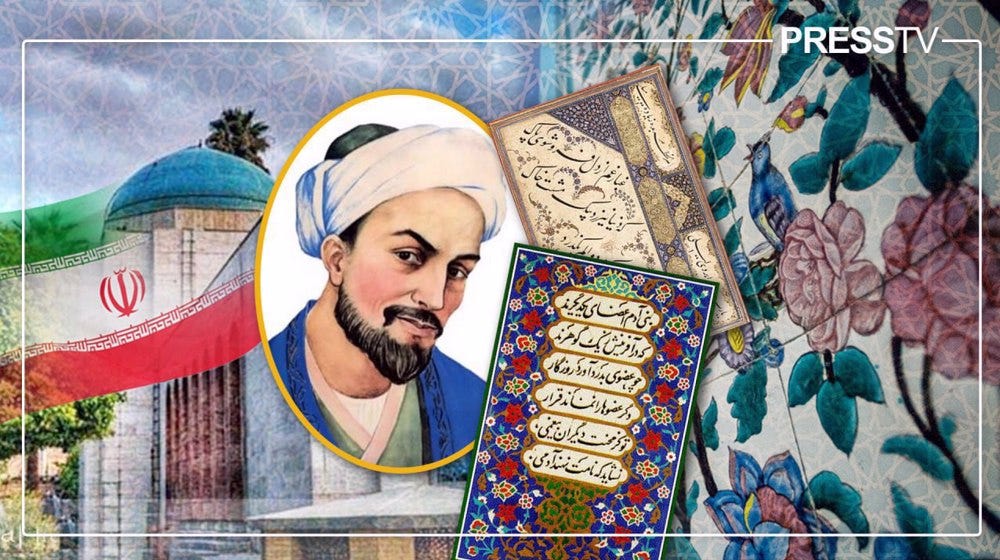Remembering Saadi Shirazi: The Persian Poet Whose Universal Wisdom Endures
A Rose That Never Wilts: Saadi’s Lessons for a Divided World
On April 21st, admirers of Persian literature around the world commemorated the legacy of Saadi Shirazi, one of Iran’s most celebrated poets and moral philosophers. Born in Shiraz around 1210, Saadi’s works have transcended centuries, offering profound insights into human nature, ethics, and social justice. His poetry and prose remain as relevant today as they were in the medieval Islamic world, resonating across cultures and generations.
The Masterpieces: Gulistan and Bustan
Saadi’s fame rests primarily on two monumental works: Bustan (The Orchard) and Gulistan (The Rose Garden). Written in 1257, Bustan is a poetic compendium of moral and ethical teachings, composed entirely in verse. It explores themes of justice, humility, love, and the virtues of contentment, blending storytelling with philosophical depth.
Gulistan, completed a year later, is a masterpiece of prose mixed with poetry. Structured in eight chapters—covering topics like the conduct of kings, the virtues of silence, and the blessings of old age—it combines witty anecdotes, Sufi wisdom, and practical advice. Unlike the purely didactic Bustan, Gulistan employs satire, humor, and vivid storytelling to convey its lessons, making it one of the most accessible yet profound works of classical Persian literature.
A Traveler’s Wisdom
What sets Saadi apart from many of his contemporaries is his firsthand experience of the world. For over thirty years, he traveled across the Middle East, North Africa, and South Asia, surviving Mongol invasions, captivity, and hardship. These journeys exposed him to diverse cultures, rulers, and ordinary people, enriching his writings with real-world observations. His tales of merchants, kings, dervishes, and thieves reflect a deep understanding of human psychology and societal dynamics.
The Universal Humanist
Saadi’s poetry often emphasizes the shared dignity of all people, regardless of status or creed. His famous lines at the UN—
"Human beings are members of a whole,
In creation of one essence and soul."
—epitomize his belief in global solidarity. In Gulistan, he writes: "A human being is like a limb of the body; if one suffers, the others cannot rest." This ethos of empathy and interconnectedness makes his work strikingly modern.
Enduring Influence
Centuries after his death (circa 1291), Saadi’s aphorisms remain embedded in Persian speech, and his stories are taught worldwide. Western writers like Emerson and Goethe admired his wisdom, while modern Iranians still visit his ornate tomb in Shiraz. In an era of division, his call for compassion—"Treat others as you would wish to be treated"—offers a timeless remedy.
Saadi Shirazi was not just a poet but a sage whose words continue to guide humanity. To read him is to encounter a mind that transcended his age, speaking truths that still light the way forward.
Source: PressTv


